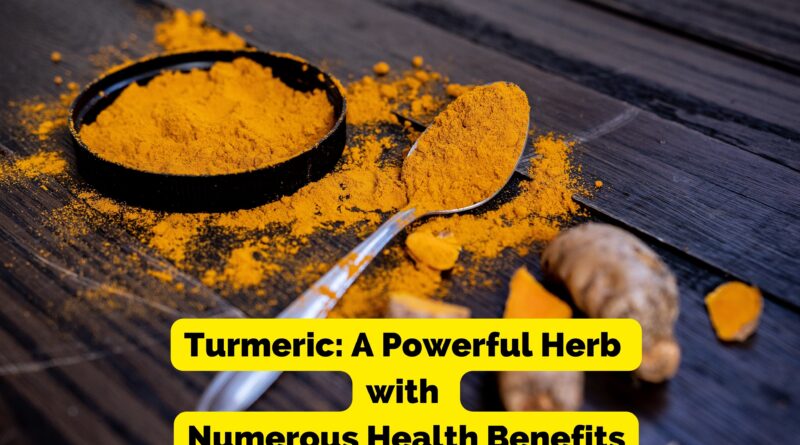A Powerful Herb with Numerous Health Benefits -Turmeric
Turmeric is a vibrant yellow-orange spice that has been used for centuries in South and Southeast Asia, as well as Iran. This powerful herb is not only known for its culinary uses but also for its medicinal properties. In recent years, there has been a surge of interest in turmeric due to its potential health benefits, particularly its anti-inflammatory effects. Mainly during Corona period for prophylaxis.
However, turmeric offers much more than just anti-inflammatory properties. In this article, we will explore the various health benefits of turmeric, the best ways to consume it, and important considerations when choosing a turmeric supplement.
Turmeric’s Traditional Uses in South and Southeast Asia and Iran
For thousands of years, turmeric has been an integral part of traditional medicine in many Asian countries. It has been used to treat a wide range of chronic diseases and health conditions. The traditional uses of turmeric include its application as an anti-inflammatory agent, antioxidant, anti-diabetic remedy, and even as a neuroprotective substance. Furthermore, turmeric has shown promise in the treatment of metabolic syndrome and related conditions such as polycystic ovarian syndrome (PCOS) and fatty liver disease.
The Anti-Inflammatory Effects of Turmeric
One of the most well-known properties of turmeric is its anti-inflammatory effects. Numerous studies have investigated the impact of turmeric on inflammation and its potential benefits for conditions such as arthritis and autoimmune diseases. A systematic review and meta-analysis of 16 randomized controlled trials involving over 1800 adults with knee osteoarthritis found that turmeric extracts significantly reduced knee pain and improved physical function. These effects were comparable to non-steroidal anti-inflammatory drugs (NSAIDs) like ibuprofen or Advil. Interestingly, turmeric extract had 12 percent fewer adverse events compared to NSAIDs, making it a potentially safer option for pain and inflammation control.
Another systematic review and meta-analysis published in December 2021 analyzed 11 randomized controlled trials with 1200 participants with knee osteoarthritis. The study found that curcumin, the active ingredient in turmeric, was more effective than NSAIDs in providing pain relief. However, these studies primarily focused on short-term use, and further research is needed to determine the long-term efficacy of curcumin.
Turmeric’s Antioxidant Properties
In addition to its anti-inflammatory effects, turmeric possesses potent antioxidant properties. Antioxidants help protect our cells from damage caused by harmful molecules called free radicals. By neutralizing free radicals, antioxidants play a crucial role in maintaining overall cellular health. Turmeric’s antioxidant activity contributes to its potential benefits for overall well-being and disease prevention.
Turmeric’s Anti-Diabetic Effects
Research has shown that turmeric, specifically its active compound curcumin, may have positive effects on glucose control and insulin resistance. Curcumin stimulates glucose uptake in fat cells and skeletal muscles and reduces glucose secretion from the liver. These mechanisms closely resemble the actions of common diabetes medications such as metformin. A recent meta-analysis of 17 randomized controlled trials revealed that turmeric supplementation significantly lowers fasting blood glucose, hemoglobin A1c, and insulin resistance.
Turmeric’s potential benefits in managing insulin resistance make it an intriguing option for individuals with conditions like PCOS, which is often associated with metabolic syndrome and insulin resistance. A randomized controlled trial involving 60 women with PCOS demonstrated that turmeric administration for 12 weeks resulted in weight reduction, improved fasting glucose levels, decreased insulin resistance, and enhanced insulin sensitivity. Additionally, combining turmeric with metformin showed synergistic effects in improving insulin resistance and cholesterol levels in PCOS patients.
Turmeric’s Anti-Cancer Properties
The potential anti-cancer properties of turmeric have garnered significant attention in recent years. Research studies have suggested that curcumin, due to its antioxidant and anti-inflammatory effects, may have protective effects against certain types of cancer. Although more research is needed, there is evidence to support its role in cancer prevention and its potential synergistic effects when combined with conventional cancer treatments.
Turmeric’s Neuroprotective Effects
Turmeric’s neuroprotective effects have also been explored in various research studies. The active compounds in turmeric, including curcumin, have shown promising results in protecting brain health and improving cognitive function. These effects make turmeric a potential ally in the prevention and management of neurodegenerative diseases such as Alzheimer’s disease. While the research in this area is still developing, the preliminary findings are encouraging.
Turmeric’s Role in the Treatment of Metabolic Syndrome
Metabolic syndrome is a cluster of conditions that includes obesity, high blood pressure, insulin resistance, and abnormal lipid levels. Turmeric has emerged as a potential supplement for managing metabolic syndrome and its associated conditions. Studies have demonstrated the benefits of turmeric in the treatment of PCOS, which is often linked to metabolic syndrome and insulin resistance. Additionally, a meta-analysis of nine randomized controlled trials showed that curcumin supplementation resulted in decreased liver markers and improved metabolic parameters in patients with fatty liver disease.
The Best Ways to Consume Turmeric
When it comes to consuming turmeric, there are various options available, including turmeric powder and curcumin supplements. Turmeric powder is commonly used in cooking and can be incorporated into various recipes. However, curcumin, the active compound in turmeric, has limited bioavailability when consumed alone. To enhance curcumin’s absorption, it is recommended to take it in supplement form with piperine, a natural compound found in black pepper. Piperine helps protect curcumin from digestive enzymes, increasing its bioavailability by up to 2000 percent.
It is important to consider the timing and dosage of turmeric supplements. Taking curcumin with meals that contain at least 15 grams of fats or oils enhances its absorption since curcumin is lipophilic and can only be dissolved in fats. Additionally, when choosing a turmeric supplement, opt for third-party tested products that are either USP or NSF verified. These verifications ensure the supplement’s quality, potency, and absence of contaminants.
Safety Considerations for Turmeric Consumption
Turmeric and curcumin supplements are generally considered safe for most individuals. Curcumin has been declared safe as generally regarded as safe (GRAS) by the FDA, even at high doses of up to 8 grams per day. However, it is essential to be aware of potential side effects and interactions.
Common side effects of curcumin supplementation include gastrointestinal issues such as abdominal pain, nausea, and diarrhea. Taking curcumin with meals can help alleviate these side effects. Curcumin also has interactions with certain medications, such as blood thinners (e.g., aspirin, Plavix, warfarin) and diabetes medications. It is crucial to consult with a healthcare professional before starting turmeric or curcumin supplementation, especially if you are taking any medications.
Individuals with kidney stones or gallstones are advised to avoid curcumin supplementation. Pregnant or breastfeeding individuals should also exercise caution, as there is limited research on the effects of curcumin in these populations.
In conclusion, turmeric, with its active compound curcumin, offers a multitude of potential health benefits. The strongest evidence supports its use in the treatment of joint pain and osteoarthritis. Additionally, turmeric’s antioxidant, anti-diabetic, anti-cancer, neuroprotective, and metabolic health effects show promise, although further research is needed to establish their full scope. When choosing turmeric supplements, consider the bioavailability-enhancing effects of piperine and select third-party tested products. As with any supplement, it is crucial to consult with a healthcare professional before starting turmeric or curcumin supplementation, particularly if you have underlying medical conditions or take medications.
You can Read Article about the Turmeric by Jhon Hopskins Medical Institute – Click Here
Frequently Asked Questions (FAQs)
Is turmeric safe to consume daily?
Can turmeric help with weight loss?
Can turmeric interact with blood thinners?
Is turmeric beneficial for skin health?
Can turmeric be used as a replacement for conventional medications?
Please go the link for such articles which can open your mind – Click here




